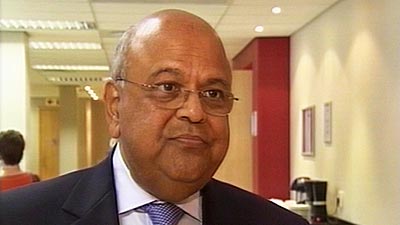State of the Nation and the curious question of a budget for those promises President Jacob Zuma’s 2012 State of the Nation Address (SONA) was perhaps one of his better annual speeches to the South African hoi polloi. It was unambiguous, to the point and more importantly not couched in economic jargon. This—one believes—will be the domain of Finance Minister Pravin Gordhan instead when he delivers his Budget speech to the nation on February 22. –>As the analysts, economists and trade unionists will tell you, it is always good to get clear mapped-out plans for the year ahead. However, the even more important aspect of this blueprint is finding the funding to activate those lofty ideals outlined in the President’s fourth SONA. In his 2012 SONA, President Zuma gave South Africans a lot of big numbers such as R300 billion for capital projects to be spread over the next seven years, R300 million to build two brand new universities in the Northern Cape and Mpumalanga and R248 million to come to the rescue of the growing problem of acid mine drainage in Gauteng’s mining hub (to mention a few). Unlike Gordhan’s previous Budget Speeches, his 2012 address will surely be constrained by a number of factors, most notably the Greek drama playing out in the Euro zone. Europe is –>South Africa’s biggest trading partner. Any seismic shift in that part of the world has a direct impact on South Africa’s economic prospects, including its currency. In the past few months, South Africans have been forking out record prices for fuel and of course ultimately food. Only this week, the price of Brent crude was peaking close to $120 a barrel. The Rand has been hovering within tight ranges—R7.59 to R8.60 to the American dollar. When Gordhan speaks to the country, he needs to balance a number of things very strategically. Not only does he have to cater for President Zuma’s promises made during the SONA and find funding for those items, he also has to ensure key sectors such as health, education and poverty (in the guise of social grants as one measure) are addressed. Funding for provinces and their local counterparts needs to be considered too. In 2011, national government has had to intervene firstly in the Eastern Cape education department and then again in three other provinces (Limpopo, Gauteng and Free State) in December that year. Limpopo alone is said to be R2 billion in the red. In Gauteng, health service providers are alleged to have not been paid. Their services to state health facilities have subsequently been suspended as a result.
“Unemployment remains stubbornly high at 25%.”
There are now some 15.3 million South Africans receiving government social grants at a cost of R100 billion (2010 figures). It is perhaps good news that Social Development Minister Bathabile Dlamini announced in parliament this week that they will be re-registering all social grants recipients to weed out fraudulent grantees. In theory, it is a brilliant initiative on government’s part. Logistically, it’s going to prove another bureaucratic nightmare. –>Unemployment remains stubbornly high at 25%. The South African Institute of Race Relations (SAIRR) estimates that approximately 73% of the country’s youth are sitting without a job. In his SONA, President Zuma announced that R1.5 billion was approved to spur job creation through 60 companies. Minister Gordhan needs to flesh this out more on budget day: how will jobs be created through these companies? And how many jobs? People are starting to grow increasingly-impatient with delivery of basic living services. In 2012 alone, there have been 19 service –related protests nationwide (SABC stats). This impatience with non-delivery beginning to manifest dangerously with attacks on local councilors and their property, journalists being chased and municipal buildings being set alight. People are looking to government and national leadership for direction. They are growing restlessly-impatient. They are frustrated and this is why ordinary South Africans are hoping for a reprieve of some sorts to ease their burdens in a tough economy. And this is why all eyes will be firmly fixed on Minister Gordhan’s Budget Speech on February 22. Unemployed South African job-seekers are hoping that the President’s lofty infrastructure announcements will somehow trickle down to them so that they too can benefit from the country’s ambitious infrastructural upgrade.
– By Ronesh Dhawraj


